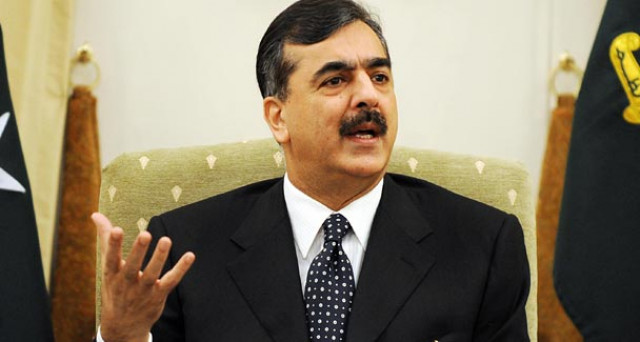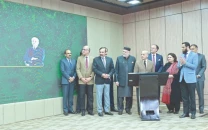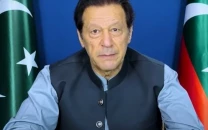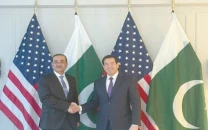Musharraf approved US reconnaissance drones: PM Gilani
Gilani reveals that Musharraf gave approval for US drones to make surveillance flights over the country.

Musharraf approved US reconnaissance drones: PM Gilani
"The previous government gave them permission for surveillance and reconnaissance flights by US drone aircraft but not to launch missile attacks," Prime Minister told diplomatic correspondents.
The United States does not officially confirm the drone attacks, but the campaign is unpopular among the Pakistan public who see military action on Pakistani soil as a breach of national sovereignty.
Gilani said "we will find out" when asked about reports that US drones use Shamsi base in southwestern province Baluchistan, but denied that drones were taking off from a military base in southern province Sindh.
"We have not provided them space (to fly). This is wrong and I have contradicted that drones were using Shahbaz base (in Sindh) for this purpose."
A covert US drone campaign has dramatically increased the frequency of drone strikes in the tribal belt in response to intelligence claims of a Mumbai-style terror plot to launch commando attacks on European cities.
Officials in Washington say drone strikes are highly effective in the war against Al-Qaeda and its Islamist allies, killing a number of high-value targets, including Pakistan's Taliban founding father Baitullah Mehsud.
But in Pakistan, anger over the attacks has fuelled reprisals from militant groups who have targeted NATO supply convoys destined for Afghanistan.
"We have repeatedly said the drone attacks are counter productive," Gilani told the group of local and foreign reporters.
"We want to have drone technology and also if they have any actionable intelligence, we want them to share it with us."
Mary Ellen O'Connell, a law professor at the University of Notre Dame in the United States, this week became the latest legal expert to warn that the drone strikes in Pakistan, Yemen and other countries violate international law and should be halted.
"The use of drones is causing really serious anger in Pakistan. I really seriously question the necessity for what we are doing," she told London think-tank Chatham House.
Although he did not specify bombing raids by unmanned aircraft, CIA chief Leon Panetta has been quoted as telling US media that the agency's expanding operations in Pakistan have taken "a serious toll" on Al-Qaeda.
Washington on Friday held out an offer of two billion dollars in fresh military aid to Pakistan, where it wants the military to do more to fight insurgents crossing into Afghanistan from the northwestern tribal belt.
The United States considers the area an Al-Qaeda headquarters and the most dangerous place on Earth.
At talks in Washington, Secretary of State Hillary Clinton said the United States had "no stronger partner when it comes to counter-terrorism".
Clinton said the military package, which is subject to Congressional approval, would come over several years and be in addition to 7.5 billion dollars in civilian aid the United States has committed over five years.



















COMMENTS
Comments are moderated and generally will be posted if they are on-topic and not abusive.
For more information, please see our Comments FAQ